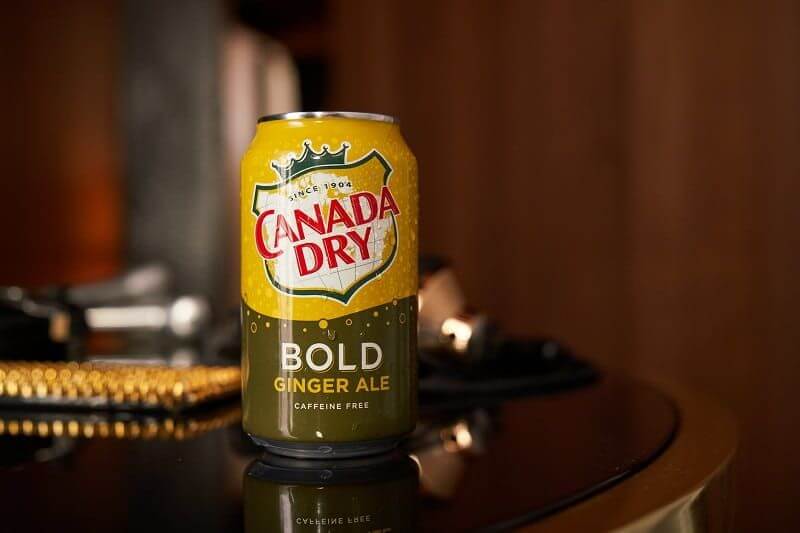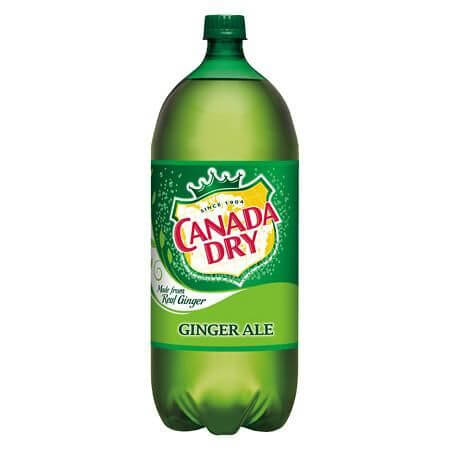Did you know how much does ginger ale have caffeine or not? No worries, you are at the right place. Ginger ale is a carbonated drink with a ginger taste. Aside from being a tasty drink, many people advocate ginger ale as a fast remedy for an upset stomach. Ginger ale found in alcoholic beverages, such as whiskey ginger and a Pimm’s Cup.
You may ponder how healthy ginger ale is to drink, regardless of how you like it. This essay will look at a thorough analysis of ginger ale, its nutrition data, and its caffeine level.
History Of Ginger Ale:
To know does ginger ale have caffeine lets have a look at its history. Ginger ale started as ginger beer in Yorkshire, England, according to Mary Bellis, author of The History of Ginger Ale. “The first ginger ales brewed in Ireland in 1851,” she adds Bellis, 2020. Then, in 1907, John McLaughlin, a Canadian pharmacist, invented Canada Dry. Because McLaughlin refined the Canada Dry formula throughout the years, it became one of the most famous ginger ale.
Taste Of Ginger Ale:
Ginger ale, as it offered in stores, is carbonated water with ginger flavoring. It gets its taste from either natural ginger or artificial additions. Natural sugars or high-fructose corn juices used to sweeten the brew. To improve this brew, honey or pineapple added as a variant.
On the other hand, traditional ginger ale made with ginger root, ginger bug (or yeast), water, and natural sugar. The drink is carbonated in the conventional technique by the fermentation of ginger bugs (yeast).
Sugar also acts as a catalyst in the fermentation process. In its commercial form, Ginger ale is kept fresher for longer by adding a salicylic acid derivative, which has antibacterial and antimicrobial properties.
Does Ginger Ale Have Caffeine?
If you are curious about does ginger ale have caffeine then then let me tell you majority of ginger ale products are caffeine-free. Some brands include caffeine, such as Bawls, but you’re unlikely to discover caffeinated ginger ale at your local supermarket.
[table id=7 /]
Other Caffeine Free Sodas:
- Coke
- Dr pepper
- Sprite
- Fanta
- A&W
- 7up
Is Ginger ale good for us?
Because of the soda’s ginger extract, Ginger Ale considered to have therapeutic effects such as nausea reduction. According to a 2018 clinical research, “ginger might be considered a nontoxic and perhaps helpful alternative for women experiencing nausea and vomiting during pregnancy” (Bodagh et al., 2018).
This research ma utilized to demonstrate that ginger ale containing actual ginger extract can temporarily relieve symptoms of an upset stomach.
Though it may aid with stomach trouble, ginger ale is still a sugary soft drink. Any energy increase you may experience, like with other sugary beverages like Powerade, is due to the replenishment of glucose in your system.
Most ginger ale brands have a little more added sugar than others, so examine the nutrition information to find which kinds are healthier. Overall, ginger ale produced with genuine ginger extract helps soothe an upset stomach, but it is not a healthy substitute for other sugary beverages. Does cream soda have caffeine.
How can you use ginger ale?
Ginger ale used to treat sore throats, coughs, and colds. It extensively used to treat motion sickness and stomach disorders. It is also an excellent anti-nausea treatment. According to current research, ginger has characteristics comparable to vitamin B6. It often used as a replacement for beer in punch and other cocktails. Its resemblance to beer and champagne allows it to pair with other drinks effortlessly.
Because ginger is a fundamental component, the health benefits of ginger naturally extend to an ale brewed from it. Its little-known health benefits include:
- Increased ability to absorb minerals and nutrients; this accomplished by producing more pancreatic and gastric enzymes
- aids in the treatment of flu and common cold symptoms;
- Discourages the progression of cancerous cells in your colorectal region, thus helping to reduce the risk of colon and other cancers.
- It prevents fatty acids from being stored in your arteries, thus reducing the risk of strokes; in the process, your immunity levels are likely to improve.
- It has the ability to protect your body from infections and allergic reactions; for example, allergies such as rhinitis, sinusitis (chronic illnesses), and dermatitis.
- (promotes the formation of mucus – particularly in your respiratory tracts; aids in the treatment of nasal congestion, res
Does Ginger Ale Have Caffeine?
A 20-ounce serving of typical ginger ale has roughly 60 grams of sugar, 60 grams of carbohydrates, and 75 milligrams of salt. It has around 225 calories. As a result, unless otherwise stated on the label, commercial ginger ale does not contain caffeine. Many commercial ale producers now provide caffeine-free ginger ale (diet offering – i.e., with lesser added sugars). These commercial companies also offer caffeine-free tonic water and club drinks. Caffeine-free seltzer water is also gaining popularity among consumers.
The finished product includes caffeine when the ginger ale combined with green tea as an extra component. Caffeine enters the body via the consumption of green tea. You may be aware that green tea contains traces of caffeine. When green tea leaves added during the manufacturing process, it is normal for ginger ale to contain caffeine.

For pregnant women, caffeine-free ginger ale is a blessing:
Because it is caffeine-free, ginger ale outperforms sodas. Caffeine is a well-known stimulant; it may raise your heart rate and blood pressure. Caffeine use is especially harmful among pregnant women since it may cross the placenta. This activity may disrupt your fetus’s sleep and causing needless movements within your womb.
Ginger ale is a blessing for pregnant women, mainly because the American Pregnancy Association recommends that pregnant women consume no more than 180 mg of caffeine per day. Ginger ale is a stimulant (much like caffeine) but without the majority of the harmful side effects.
Ginger ale stimulates but does not induce any of the medical issues (both short and long-term) that are often associated with caffeine usage.
Pregnant ladies are well aware of the discomforts caused by morning sickness. Carbonated beverages may provide the necessary treatment for this medical condition. However, pregnant women recommended to avoid drinking sodas since commercially available sodas contain caffeine.
Pregnant women may instead consume caffeine-free ginger ale. However, check with your obstetrician to see whether your health situation enables you to use ginger ale to treat morning sickness.
Dietary research shows that ginger ale may help regulate blood sugar levels. During pregnancy, moms’ blood sugar levels may often drop. Eating tiny amounts of ginger ale is advised to restore normal blood sugar levels. Ginger ale also contains salt, calcium, magnesium, and iron, all of which are essential elements for the health of the baby and the expectant mother.
On top of that, the drink has no cholesterol or fat. However, the glass lacks protein and fiber in any manner. Its therapy qualities include the capacity to cure joint inflammation (in disorders such as arthritis), minimize the risks connected with ovarian malignancies, and, last but not least, reduce oxidative anxiety or stress buildup.
Final Words:
Ginger ale is well-known for providing rapid energy; it’s a wonderful drink after a long day at work. It is renowned for its therapeutic effects in treating sinus infections, respiratory disorders, and throat allergies. So, before adding a product to your shopping basket, always check the label to determine whether it contains caffeine.
Our main vision to provide our user the quick and authentic information about does ginger ale have caffeine. We covered this topic briefly and expect our users like it and will visit our website for more.

